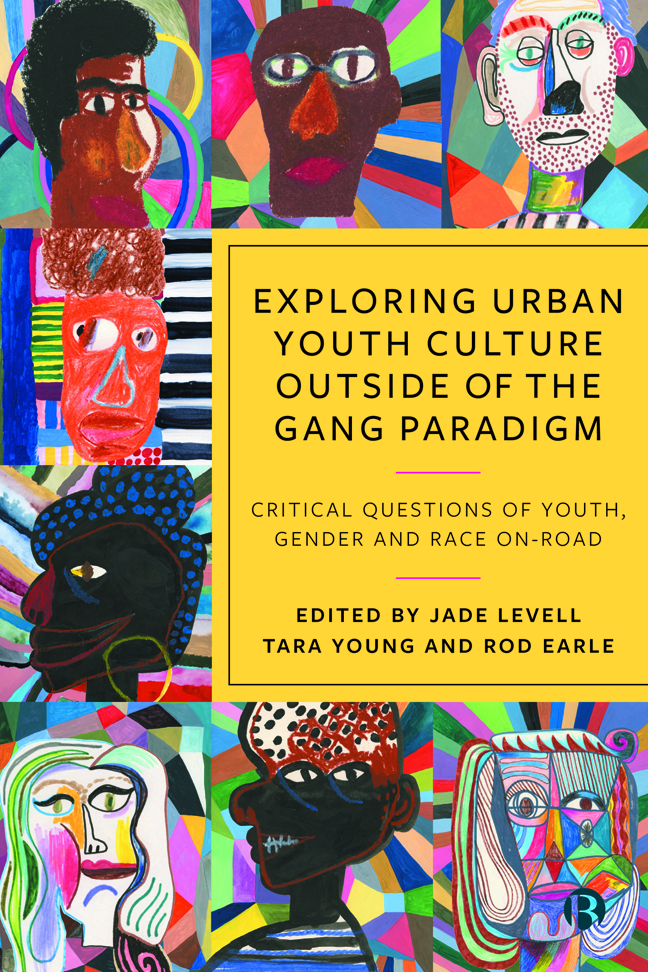 Exploring Urban Youth Culture Outside of the Gang Paradigm
Exploring Urban Youth Culture Outside of the Gang Paradigm Book contents
- Frontmatter
- Contents
- Notes on Contributors
- Foreword
- Preface
- 1 Introduction: Youth and On-Road – Making Gender and Race Matter
- 2 Black, British Young Women On-Road: Intersections of Gender, Race and Youth in British Interwar Youth Penal Reform
- 3 Tainted Love: Intimate Relationships and Gendered Violence On-Road
- 4 (The) Trouble with Friends: Narrative Stories of Friendship and Violence On-Road
- 5 The Sexual Politics of Masculinity and Vulnerability On-Road: Gender, Race and Male Victimisation
- 6 The Road, in Court: How UK Drill Music Became a Criminal Offence
- 7 On-Road Inside: Music as a Site of Carceral Convergence
- 8 Jeta e Rrugës: Translocal On-Road Hustle, Within and from Albania
- 9 ‘He's shown me the road’: Role Model and Roadman
- 10 Diary of an On-Road Criminologist: An Auto-Ethnographic Reflection
- 11 Conclusions, Compromises and Continuing Conversations
- Index
11 - Conclusions, Compromises and Continuing Conversations
Published online by Cambridge University Press: 24 January 2024
- Frontmatter
- Contents
- Notes on Contributors
- Foreword
- Preface
- 1 Introduction: Youth and On-Road – Making Gender and Race Matter
- 2 Black, British Young Women On-Road: Intersections of Gender, Race and Youth in British Interwar Youth Penal Reform
- 3 Tainted Love: Intimate Relationships and Gendered Violence On-Road
- 4 (The) Trouble with Friends: Narrative Stories of Friendship and Violence On-Road
- 5 The Sexual Politics of Masculinity and Vulnerability On-Road: Gender, Race and Male Victimisation
- 6 The Road, in Court: How UK Drill Music Became a Criminal Offence
- 7 On-Road Inside: Music as a Site of Carceral Convergence
- 8 Jeta e Rrugës: Translocal On-Road Hustle, Within and from Albania
- 9 ‘He's shown me the road’: Role Model and Roadman
- 10 Diary of an On-Road Criminologist: An Auto-Ethnographic Reflection
- 11 Conclusions, Compromises and Continuing Conversations
- Index
Summary
As we discussed in the Preface, an edited collection is by nature a collaboration, a milieu of different perspectives and experiences which together create a provocative mosaic of scholarly work. In a similar vein, an editorial group is an alliance of people with a shared interest but from differing perspectives. This is what makes it so wonderful to work as a team. To reflect our cultural and gender diversity as a team we have decided to organise this concluding chapter into three parts, where we each reflect on the aspects of the collection which speak most to us and our own work, and most importantly, what the next steps are for this field of study. What questions need to be further posed.
Jade's reflections: feminist lens on the soundtracks to subjectivity, relationality, love and community
As some contributors in the collection have noted, adult anxiety about the generation beneath them is perennial (Powell, 2011). Although the concept of ‘youth’ is relatively recently conceived. From the mid-17th century young people started to be seen as separate from both adults and children, with the concept of ‘adolescence’ coined by G. Stanley Hall (1904). In this text he discussed ‘several “problems of youth”, including: unbridled sexuality; rejection of parents/teachers; lack of concentration; extremes of emotion including aggression; and unpredictability’ (Powell, 2011: 11). The causes for this were attributed to both social context and biological changes in the shift to adulthood. The reason for this increased focus on the teenage years came from an enhanced concern around deviance, delinquency and social reform (Garland et al, 2015). The focus on youth has been said to be laden with symbolic value. The concept of youth has ‘served as a metaphorical device to embody both the aspirations and anxieties of a particular historical time … a harbinger of change, an emergent consumer, a signifier of hope, or a portent of social decline’ (Garland et al, 2015: 2). Therefore, it is important to focus on the wider meanings and social context of the current youth moral panic and what it indicates about contemporary social and political change. This collection has sought to go beyond the individuals that are often viewed as a collective who are on the periphery or in the throws of ‘gang-involvement’.
- Type
- Chapter
- Information
- Exploring Urban Youth Culture Outside of the Gang ParadigmCritical Questions of Youth, Gender and Race On-Road, pp. 186 - 200Publisher: Bristol University PressPrint publication year: 2023


